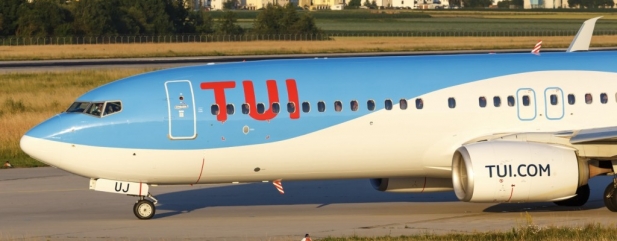Archived article
Please note that tax, investment, pension and ISA rules can change and the information and any views contained in this article may now be inaccurate.
Will airlines and holiday companies survive the coronavirus fallout?

AJ Bell is an easy to use, award-winning platform Open an account
We've accounts to suit every investing need, and free guides and special offers to help you get the most from them.
You can get a few handy suggestions, or even get our experts to do the hard work for you – by picking one of our simple investment ideas.
All the resources you need to choose your shares, from market data to the latest investment news and analysis.
Funds offer an easier way to build your portfolio – we’ve got everything you need to choose the right one.
Starting to save for a pension, approaching retirement, or after an explainer on pension jargon? We can help.
Please note that tax, investment, pension and ISA rules can change and the information and any views contained in this article may now be inaccurate.

Airlines and holiday companies face a precarious future and there’s no guarantee they’ll survive what could be a long-term travel freeze and slow recovery. However, the London-listed operators apart from TUI (TUI) look better placed than their European rivals.
EasyJet (EZJ), Wizz Air (WIZZ) and Ryanair (RYA) all say they are in a strong financial position. But as British Airways chief executive Alex Cruz told employees last week, in these troubled times for aviation, ‘airlines with a weak balance sheet, or carrying large debts, are facing a dire future’.
For some international airlines like Norwegian Air, SAS, Cathay Pacific and Korean Air, the future looks incredibly bleak.
Airlines are now dramatically reducing capacity and grounding large numbers of planes due to travel restrictions. Cruise companies are also scaling down operations.
Analysts at Citi have calculated that a three-month shutdown would leave Ryanair’s net debt-to-earnings at a multiple of 1.2 and EasyJet’s at 1.9, with International Consolidated Airlines (IAG) having a ratio of 3.4. Generally a figure below 3.5 is deemed to be acceptable.
By contrast, their European counterparts like Air France-KLM would have a net debt-to-earnings ratio of 7.7, or 12.4 in the case of Lufthansa.
Dart Group (DTG:AIM), which owns the Jet2 airline and package holiday company, has been the biggest faller among London-listed airline stocks in share price terms, plunging 75% year-to-date.
It has suspended all flights to Spain with the country on lockdown. It’s a big blow to Jet2, with Spain accounting for half its seat total.
The big concern among the London-listed travel firms is TUI, which unlike the aforementioned companies is also involved in the embattled cruise industry.
The Anglo-German tour operator has around €5bn in debt, and according to the Financial Times, the cost of insuring that debt has risen fourfold since
mid-February.
TUI says it has €1.4bn in cash and available facilities on its balance sheet, but Jefferies analyst Becky Lane previously highlighted that a large amount its cash would be from customer deposits that might have to be refunded.
The company has applied for state aid guarantees until normal operations are resumed, but its future is far from certain.
These articles are provided by Shares magazine which is published by AJ Bell Media, a part of AJ Bell. Shares is not written by AJ Bell.
Shares is provided for your general information and use and is not a personal recommendation to invest. It is not intended to be relied upon by you in making or not making any investment decisions. The investments referred to in these articles will not be suitable for all investors. If in doubt please seek appropriate independent financial advice.
Investors acting on the information in these articles do so at their own risk and AJ Bell Media and its staff do not accept liability for losses suffered by investors as a result of their investment decisions.
The value of your investments can go down as well as up and you may get back less than you originally invested. We don't offer advice, so it's important you understand the risks, if you're unsure please consult a suitably qualified financial adviser. Tax treatment depends on your individual circumstances and rules may change. Past performance is not a guide to future performance and some investments need to be held for the long term.
 magazine
magazine